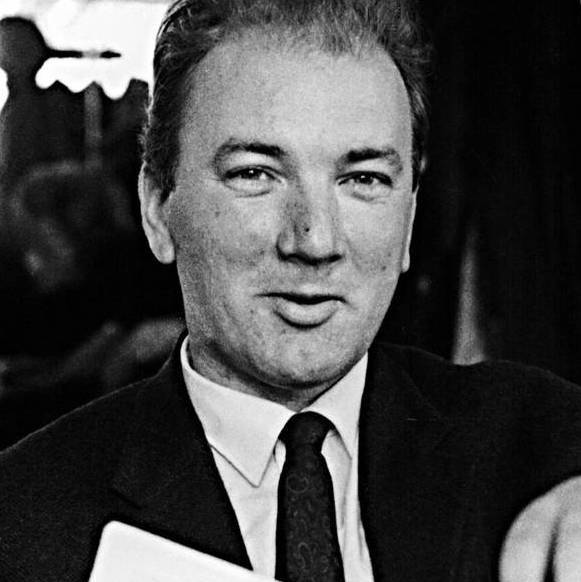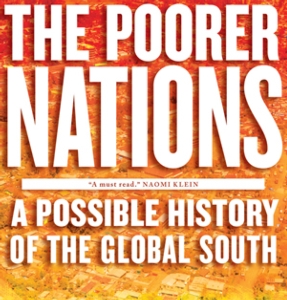
Fenton’s words were in my mind as I waited for him on the steps of the British Museum. The previous day I had been at the South Bank to hear him read from his new collection Yellow Tulips: Poems 1968-2011, and been reminded of the physicality of his poetry, and the fact that Fenton is one of the great contemporary readers of poetry – able to embody a poem while never quite encumbering it with “performance”.
In this, as in so much else, Fenton’s work is reminiscent of WH Auden’s. To read or hear read a poem of his is, as it is with Auden, to encounter a work that not merely (merely!) can be felt at the level of emotion, but is possessed of a tangible presence. The subject might be love, politics, religion, war, but they all share the quality of disturbing the ground beneath you. They can sometimes seem like a kind of secular analogue to religion.
This isn’t meant as denigration: Fenton’s concerns are our concerns, not those of some unfalsifiably hypothesised deity. But they are marked by religious experience: they do bear the scars of their genesis. “My childhood,” Fenton tells me, “was a clergy childhood. My father was a clergyman, my earliest memories are of playing in Lincoln Cathedral Close.” Fenton went to the Chorister School in Durham, where he got a very Christian kind of artistic education. “It was a musical education of a particular kind, which was that the music we were making was conceived as being made not for artistic purposes, but for the glory of God. Everything to do with artistic self-expression was potentially frowned on as a kind of vanity, whereas achieving the highest quality of performance was justified as being for the greater glory of God. When it came to performing songs like ‘Once in Royal David’s City’, our choirmaster preferred to give the soloist’s spot to two boys, so that the vanity associated with being the soloist didn’t poison the little bugger’s character.”
Did his father’s job make for a similarly pious atmosphere at home? “He wasn’t an oppressive religious figure, he was a sort of modern theologian. Quite early on I realised that there wasn’t a uniformity of belief or interpretation, I suppose that’s an important thing to learn. But he said the services every day, so when we were on holiday he’d be pulling out his prayer book and saying matins in the car – to himself – on the way. It wasn’t the kind of family where there were family prayers.”
Fenton’s early sense of the discrete nature of belief, his recognition that this was a world of apparently immutable meaning in which meaning was everywhere contested, was accompanied by the burgeoning of an interest in that great destabiliser of certainty, literature. “The house certainly had a lot of books.” Was there a particular book that made him want to be a writer? “I don’t think there was. But I can remember at one point one of the school masters, when I was about 11, going round the classroom and saying of the various boys, ‘I think you will do this, I think you will do that, I think you will probably be some kind of scientist.’ And he came to me, and he said, ‘I think you will be a writer.’ I was thrilled. But at that stage I wanted to be a professor: I wanted to be a professor of classics.”
Fenton might not have realised that ambition, but he did eventually become Professor of Poetry at Oxford, the university at which his reputation took wing when, in his first year, he won the Newdigate Prize for poetry for his sonnet sequence “Our Western Furniture”. He also met Christopher Hitchens, who was responsible for recruiting him to the International Socialists. This move was more indicative of his knack for friendship than his revolutionary zeal. “I joined because Hitch was just about to be thrown out; he was a very lazy revolutionary. He was about to go to a meeting where he was going to have to answer for himself, so I said to him, ‘Why don’t we go along, my friend and I, and say that you’ve been busy converting us to the cause, and we’ll join?’ We went along, and joined up in order to stop him being thrown out.” Solidarity, I suggest. “Yes. That’s what solidarity meant.”
After Oxford Fenton took an editorial job alongside Hitchens and Martin Amis at the New Statesman, travelled to Indo-China to work as a war correspondent (one result of which would be the extraordinary work of non-fiction All the Wrong Places: Adrift in the Politics of South-East Asia), and continued to write poetry of extraordinary technical virtuosity. Not many of his poems are concerned explicitly with religion, but nearly all of them carry an inflection of Fenton’s history with belief.
In “God, a Poem”, one of his more humorous works , that nonexistent father addresses his putative creations with haughty self-righteousness:
‘I didn’t exist at Creation,
I didn’t exist at the Flood,
And I won’t be around for Salvation
To sort out the sheep from the cud –‘Or whatever the phrase is. The fact is
In soteriological terms
I’m a crude existential malpractice
And you are a diet of worms.’
And in “Poem Against Catholics”, which he co-wrote with his friend and sometime tutor John Fuller:
High Anglo-Catholics are beneath contempt -
All intellectual and moral wrecks.
They love the frills but hold themselves exempt
From all restrictions in the line of sex.
As press-ups are to health-fiends, genuflection
Is to the average Anglo-Catholic Prod.
What a good way to nourish one’s erection.
God we hate Catholics and their Catholic God.
For all its formal brilliance, this is knockabout stuff. But the objections and the premises of these poems are echoed in the more serious work, such as “For Andrew Wood”, which opens by asking:
What would the dead want from us
Watching from their cave?
Would they have us forever howling?
Would they have us rave
Or disfigure ourselves, or be strangled
Like some ancient emperor’s slave?
And replies:
I think the dead would want us
To weep for what they have lost.
I think that our luck in continuing
Is what would affect them most.
But time would find them generous
And less self-engrossed.* *
And so the dead might cease to grieve
And we might make amends
And there might be a pact between
Dead friends and living friends.
What our dead friends would want from us
Would be such living friends.
These words are the product of what Fenton describes as “the effect on you emotionally and artistically when the beliefs that you were brought up with turn out to be illusory.” Appropriately this poem about loss was read by Fenton at a ceremony to mark another – the death of his great friend Hitchens last December.
Part of the cement of their long friendship was a shared love of Auden’s poetry. Something about Auden’s great ability to express love, without being mawkish, appealed to them both. I remind Fenton of a remark Auden once made to someone who complained that, for a poet, he wasn’t very romantic. If its romance you want, replied Auden, go fuck a journalist.
“Auden is not against the existence of love, of course, but against a kind of false romanticism. I was thinking the other day about what he said to Stephen Spender: ‘You must write poetry.’ Spender asked why. Auden said: ‘Because you’re so infinitely capable of being humiliated. Art is born out of humiliation.’” Fenton has proven himself perfectly prepared to face this humiliation, for the chance that poetry offers of “saying something true that has never been said before”. In Yellow Tulips he does, over and over, and with a sympathy for what Auden called “human unsuccess” that proves that it is made not for the glory of God but for us.
Yellow Tulips: Poems 1968-2011 by James Fenton is published by Faber

